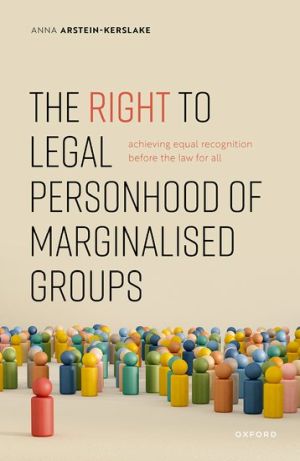
Legal personhood is required for voting, marrying, inheriting, contracting, consenting, and other critical social acts that can be predicates to power and privilege. The Right to Legal Personhood of Marginalised Groups addresses personhood and legal capacity as human rights issues, in particular as they relate to disabled people, migrant groups, indigenous peoples, racial minorities, women, and gender minorities.
The concepts of personhood, legal capacity, and agency have conflicting definitions in the literature, and there is a lack of clarity regarding their application. Dr. Anna Arstein-Kerslake brings her expertise as a renowned thinker in the areas of human rights, disability rights, gender justice, and legal personhood to this discussion. She provides clarity on personhood and legal capacity by developing definitions of these concepts based on the articulation of the right to legal capacity in Article 12 of the United Nations Convention on the Rights of Persons with Disabilities. She then applies these definitions to the situations of various minority groups.
The Right to Legal Personhood of Marginalised Groups has the potential to significantly enrich the understanding of how and why marginalised groups are denied equality. It goes beyond the traditional analysis of discrimination and equal protection of the law and explores a new social justice imperative: equal recognition before the law.